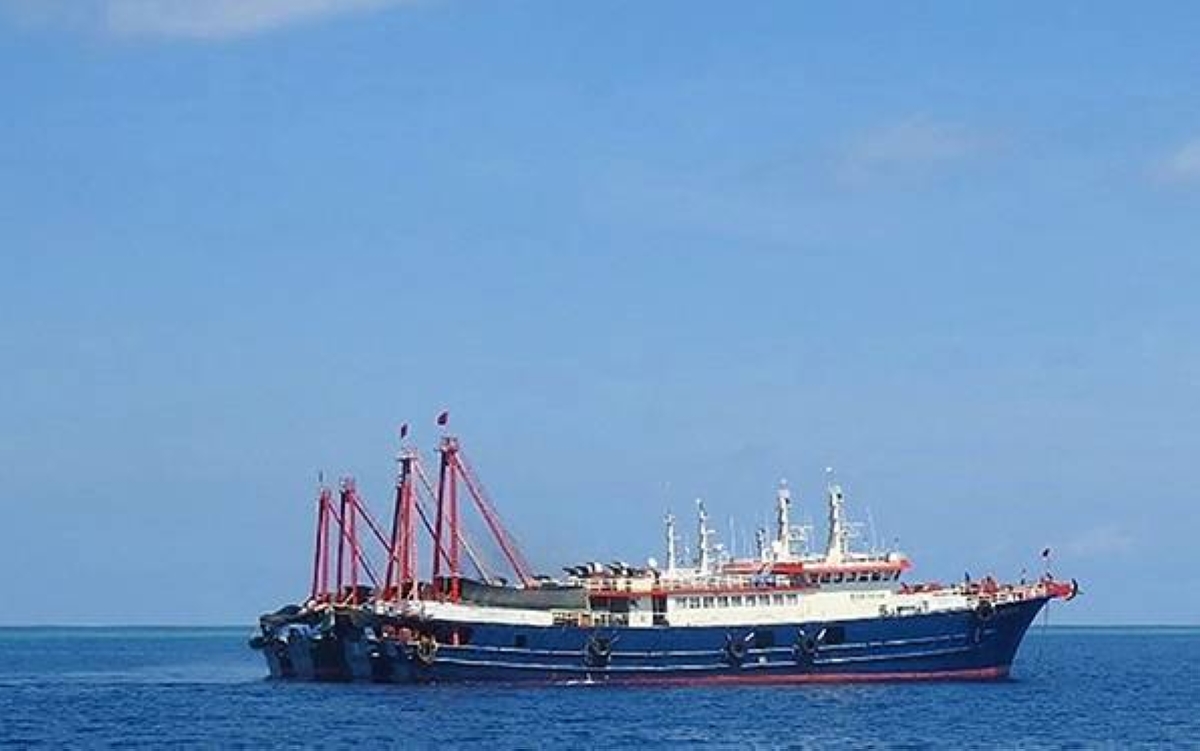MANILA, Philippines: China is currently carrying out a significant rotation of its maritime militia in the West Philippine Sea, just days after diplomatic discussions between Manila and Beijing aimed at easing tensions in the South China Sea (SCS) and addressing incidents in the region.
On Saturday morning, at least 27 Qiong Sansha Yu-class ships were spotted south of the Spratly Islands and east of Bajo de Masinloc (Panatag or Scarborough Shoal).
The Qiong Sansha Yu-class ships are professional maritime militia vessels operated by the state-owned Sansha Fisheries Development Company. These vessels often work in conjunction with the China Coast Guard (CCG) to enforce Beijing’s territorial claims in the SCS, which includes the West Philippine Sea.
According to Col. Raymond Powell, a maritime security expert and retired United States Air Force official, the current rotation indicates that other Chinese militia ships, which have been stationed in the area for a while, will be heading home once there is a little overlap. The Spratly Islands, located in the South China Sea, are a disputed archipelago off the coasts of the Philippines, Malaysia, and southern Vietnam. The archipelago consists of approximately 45 islands, cays, reefs, and shoals, all of which are occupied by military forces from Malaysia, China, Taiwan, the Philippines, and Vietnam. Brunei has also claimed an exclusive economic zone in the area.
Bajo de Masinloc is another disputed territory, claimed by Manila through the 1734 Velarde map, while Beijing claims it through the controversial nine-dash line. Previously administered by the Philippines as part of its Zambales province, Bajo de Masinloc was effectively captured by Chinese maritime forces in 2012 following a standoff initiated by China’s use of warships against fishing boats.
On January 17, the Philippines and China convened the 8th Bilateral Consultation Mechanism (BCM) on the South China Sea in Shanghai, China. During the discussions, both countries engaged in a “candid and in-depth exchange of views” on the situation in the SCS.
The Chinese foreign ministry stated that both sides agreed on the importance of maintaining communication and dialogue to preserve maritime peace and stability. They also emphasized the need for continuous dialogue to prevent the escalation of tensions. Additionally, the two countries expressed their commitment to improving their “maritime communication mechanism” to effectively handle maritime emergencies, particularly in the area of Ren’ai Shoal (known as Ayungin Shoal in the Philippines). This location has witnessed numerous encounters between maritime vessels from Manila and Beijing.
China’s ongoing rotation of its maritime militia in the West Philippine Sea underscores the complex and sensitive nature of the territorial disputes in the region. As tensions persist, diplomatic efforts and improved communication mechanisms will be crucial in maintaining peace and stability in the South China Sea.
Source: The Manila Times








